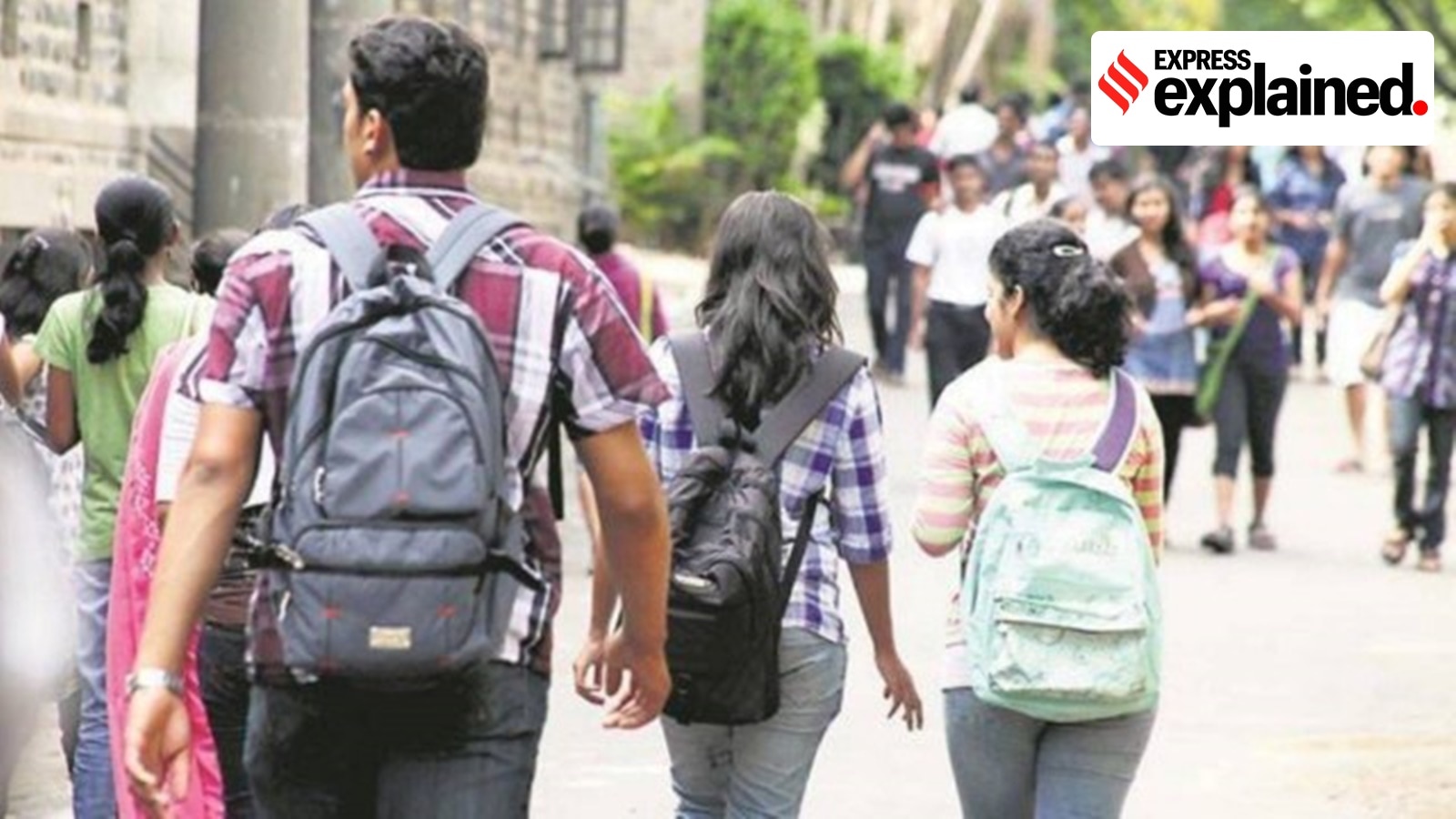
What is the admission process in Karnataka’s private colleges? And what is the scam?
Private colleges in Karnataka are supposed to fill 45% of their seats through ‘government seat quota’, where the annual fee is capped at Rs 76,135. For the other 55% of the seats, colleges can decide their own fee structure. Candidates are selected through the Karnataka Common Entrance Test, commonly known as KCET.
These seats are for various professional courses such as engineering, Bachelor of Pharmacy (BPharma), Diploma in Pharmacy (Dpharma), etc.
To decide a candidate’s rank, 50% weightage is given to their Class 12 score and 50% to the marks they score in KCET. After these, students appear for counselling in three rounds. For this, they are provided online credentials like KCET number and password.
Under the government seat quota, students can apply for at least three colleges and courses in the three rounds for the admission. At the end of the admission process, if a student has chosen a college and does not take admission, the unfilled seat can be converted to a ‘management’ seat, for which the college can charge a hefty fee. This is on the basis of a Memorandum of Understanding between the government and Karnataka Unaided Private Engineering Colleges Association (KUPECA).
Thus, a seat for which a student selected through government quota would have paid Rs 76,135 can fetch upto Rs 30 lakh or beyond as ‘management’ seat.
Story continues below this ad
The police have found that the accused were blocking some government quota seats till the admissions process concluded, so that they remain unfilled and were converted to management seats.
How did the scam come to light?
After the counselling rounds this year, the Karnataka government found that 2,625 students did not enroll in the seats they had chosen, despite attending the three rounds of counselling. The Karnataka Examination Authority (KEA) issued notices to all 2,625, and many replied saying they were unaware an engineering seat had been blocked under their name. Some of these had opted for BSc courses, some had joined medical colleges, while some had gone to IITs.
According to higher education minister MC Sudhakar, government seats in BMS College of Engineering (92 ), Akash Institute of Technology (82), New Horizon College of Engineering (52), Vivekananda Institute of Technology (45), Dayanand Sagar College of Engineering (34), Sir M Visvesvaraya Institute of Technology (32), and MVJ College of Engineering (31) remained vacant.
It was also revealed that the seats were selected from the same IP address and that the mobile numbers provided were either bogus or wrong.
Story continues below this ad
On November 13, KEA administrator Islauddin J Gadyal filed a complaint with the Malleshwaram police in Bengaluru.
None of the private colleges has yet commented on the matter.
What have police investigations revealed?
The police found out that Virtual Private Network (VPN) was used to morph the IP addresses, active from January this year in Shivamogga, Goa, and other places.
A police officer said, “Our investigation began from the KEA building, as this sort of a scam was impossible without an insider’s help. We picked up Avinash BS, a 36-year-old KEA officer who was looking after the data. It was found that he shared the data with private persons.”
What was the modus operandi?
Story continues below this ad
According to the police, Avinash had the data of students who took the KCET examination but did not appear for counselling. He shared their KCET number and login passwords with agents. The agents then blocked some seats posing as students in the online counselling process.
A senior police officer said, “Seats were illegally blocked in exchange for bribes ranging from Rs 2-3 lakh. The group used this fraudulent system to benefit private colleges financially, depriving eligible candidates of their rightful opportunities.”
How does seat blocking benefit the college and agents?
According to the police, the gang operates by identifying wealthy people who want their children enrolled in prestigious courses and colleges. A police officer said these seats are sold from Rs 20 lakh to Rs 40 lakh per year. “The agent who brings customers will get a commission. So, during admissions, there is a race among agents to bring in the parent who can pay the maximum.”
Had the accused not blocked these seats, they could have gone to the student next in the merit list.








































